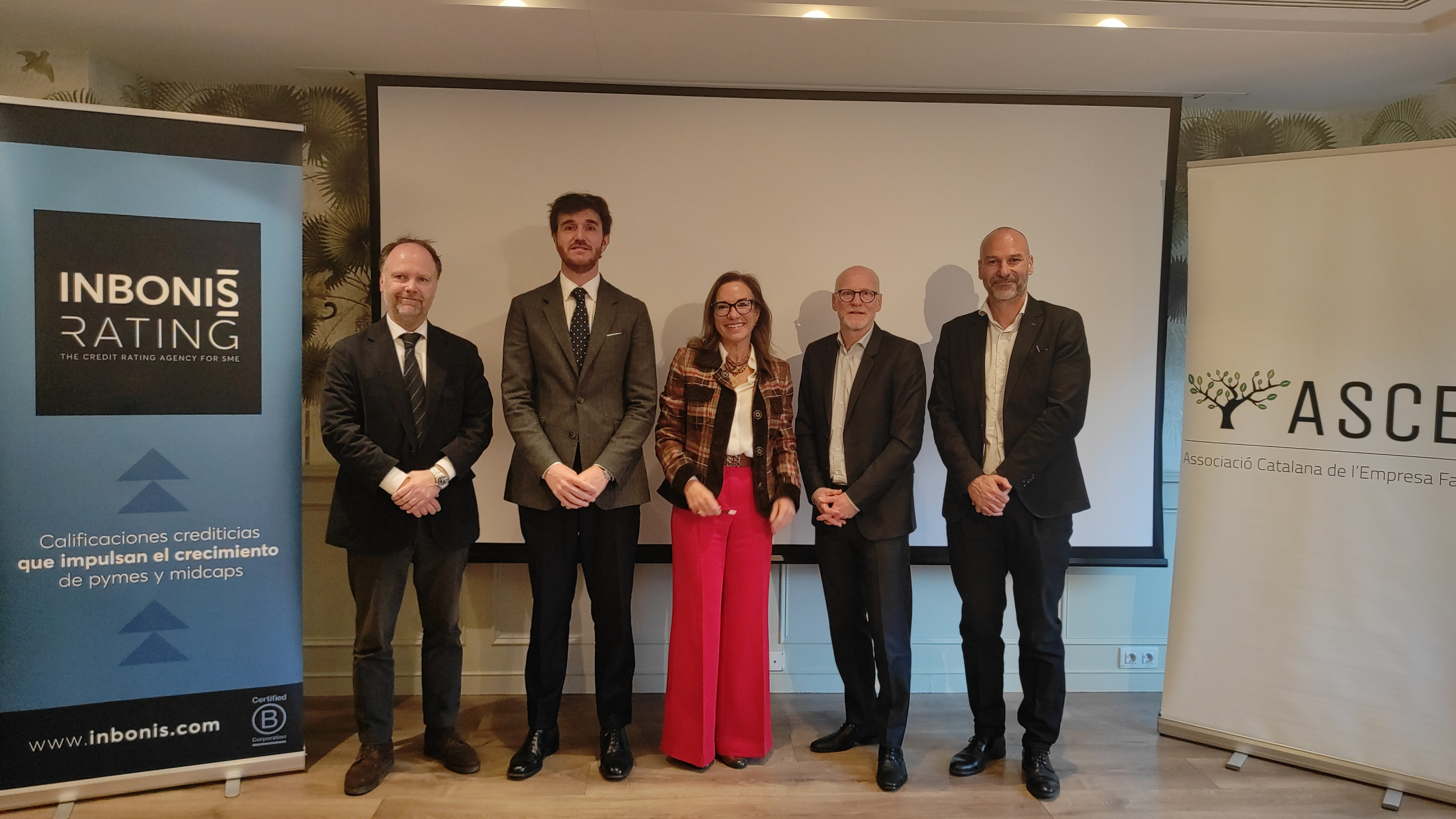Introducing INBONIS Watch for Family Business Family companies get better credit ratings than other companies

On Tuesday, February 27th, The Catalonian Association of Family Business (ASCEF, acronym in Spanish), presented the family business’ INBONIS Watch, developed by Inbonis Rating, with the support of the Family Business Institute.
Alberto Sánchez Navalpotro, Inbonis Rating’s CEO and Esteban Sastre, IEF’s Business and Economics Director, have presented the Watch’s report. One of the novelties of this credit rating agency is that beyond quantitative data reports of accounts, it incorporates qualitative criteria related to governance and, especially, integrates ESG aspects in the criteria of company development.
After analyzing more than 550 reports of credit rating for small and medium-sized companies, the first conclusion by the INBONIS Watch is that family businesses have higher ratings (over 77% of them are above “B”) than other companies. The reasons are found in the family business’ intrinsic values, namely their will for succession, experienced stockholders, and strongly committed teams.
Furthermore, we can notice a correlation between the enforcement of ESG criteria and credit rating; family companies with better credit rating manage their ESG better, consequently only family companies with good ESG management achieve the BB credit rating.
People in charge of the Watch have explained that the incorporation of qualitative aspects in risks analysis reduces the likelihood of defaults in more than 30 points, therefore the company’s status would be substantially better than what is solely conveyed through their financial statements. Also, family businesses tend to be more resilient as they overcome crisis more successfully and adapt better to and resist income loss.
Meanwhile, the Watch has pointed out financial management as an aspect to be improved by the family business, specifying that there is opportunity for improvement in the diversification of its financing sources or in balancing their settlement and collection policies, for example. This is why the second part of the session was focused on analyzing which may be the potential financing sources for today’s companies other than banks.
The round table moderated by Jaume Alsina, President of ASCEF, featured the participation of Alberto Sánchez Navalpotro, Alicia Martín, LB Oprent’s Sales Director and Quim Pagespetit, CFO of Casa Mas. Alberto Sánchez noted that we find ourselves before a paradigm change where banks are more reluctant to offer long-term credits, and companies should seize the opportunities provided by alternative financing sources; so it was particularly interesting to hear the testimony of the other two guests who have shared their experience in the search for and handling of private and public long-term financing.